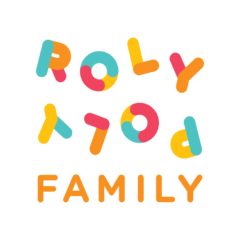Letter to Today Online: Both parents and schools continue to play a vital role in providing comprehensive sexuality education
Our co-founder, Faye Lim, and Shumei Winstanley of Chapter Zero, submitted this letter to Today Online, in response to other published opinion pieces in February 2019 regarding parents’ roles in sex education. The letter was not published so it is made available below.
(Today Online did, however, publish a letter by Tan Joo Hymn, titled “Teens can benefit from mutually respectful parent-child dialogues about sex.” We are in agreement with Tan and encourage you to read it.)
“Both parents and schools continue to play a vital role in providing comprehensive sexuality education”
When we saw the published opinion pieces, (“When my nine-year-old son asks about the birds and the bees”; Feb 8 and “The rightful role of parents in sex education”; Feb 14), we were heartened that this important subject is getting more air-time.
We agree that parents need to be involved in their children’s sex education and that the learning can begin at a young age in age-appropriate ways.
For example, Singapore Children’s Society’s Kidzlive: I Can Protect Myself programme teaches K2 students the accurate names of private body parts and we applaud this. As organisations working with families and young children, we do not shy away from healthy discussions about body parts as it is important to be factual, whilst remaining age-appropriate with children. However, we recognise not all families in Singapore feel equipped to address sex education with their children.
Many of us in Singapore did not grow up with comprehensive sexuality education and the topic of sex remains taboo in many families. Private body parts were often treated as shameful, and many of us grew up with a deep sense of shame and insecurity about our bodies and sexuality.
A survey conducted by AWARE and Ngee Ann Polytechnic’s Diploma in Psychology Studies students observed that among “almost 800 young persons (16 to 25 years old)… friends and partners were found to be popular sources of information on sexual health, and parents the least popular” (“Many young people unsure of contraceptive use, and feel they can’t talk to parents about sexual health”; AWARE). Young people also “expressed uncertainty about their parents’ openness to discussing sexual issues, or perceived them as unapproachable.” Since then, AWARE developed a workshop, Birds and Bees, to prepare parents for conversations about sex with their children.
Schools continue to play a vital role in providing comprehensive sexuality education to children across Singapore. According to UNESCO, a comprehensive sexuality education “helps young people become more responsible in their attitude and behaviour regarding sexual and reproductive health… and is essential to combat…teenage pregnancy and sexual and reproductive health issues” (“UN urges Comprehensive Approach to Sexuality Education”; UNESCO).
Lessons on and access to contraception are essential components of comprehensive sexuality education. Promoting abstinence from sex before marriage is insufficient in and of itself to protect our children from STDs and teen pregnancy. Figures from the Ministry of Health show that the number of teen pregnancies “dropped massively” between 2005 to 2015 and social workers attributed the decline, not to a decrease in teenagers having sex, but to their use of contraceptives and sexuality education programmes in schools (“Big Drop In Number of Teen Pregnancies”; Straits Times; Feb 22, 2016).
Ultimately, comprehensive sexuality education should also promote body autonomy, boundaries, consent and assertiveness, all of which contribute towards our children becoming respectful and responsible adults. In our humble opinion, it is essential that learning takes place in safe environments with parents and teachers, rather than solely through internet searches or peer discussion. (493 words)
Faye Lim, Derring-Do Dance, and Shumei Winstanley, Chapter Zero

